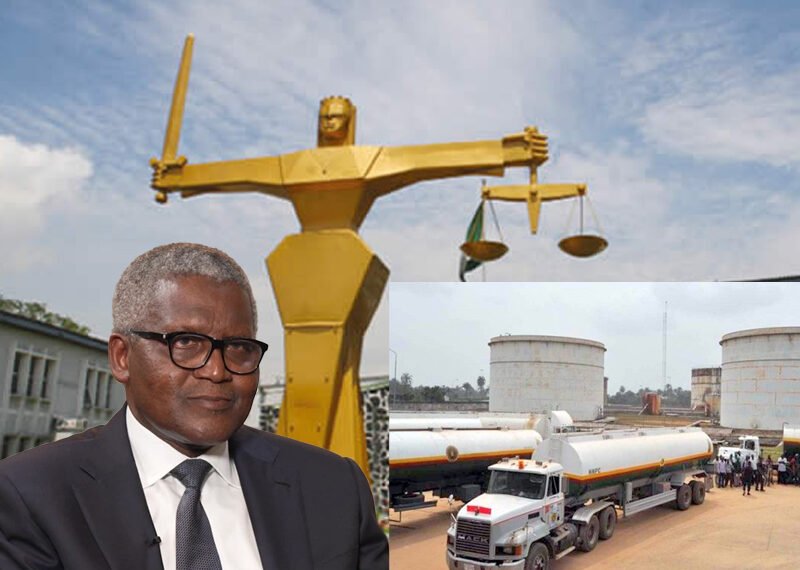Three major oil marketers—AYM Shafa Limited, A. A. Rano Limited, and Matrix Petroleum Services Limited—have approached the Federal High Court in Abuja, challenging what they allege is an attempt by Dangote Petroleum Refinery and Petrochemicals FZE to monopolize Nigeria’s energy sector. The companies argue that allowing Dangote Refinery exclusive control over oil imports could destabilize the industry, drive up fuel prices, and impose severe hardships on Nigerian consumers.
The dispute stems from a lawsuit filed by Dangote Refinery, which seeks to nullify the import licenses granted to these marketers by the Nigeria Midstream and Downstream Petroleum Regulatory Authority (NMDPRA) and Nigeria National Petroleum Corporation Limited (NNPC). Dangote’s suit claims that the licenses were issued in violation of the Petroleum Industry Act (PIA) and argues that Dangote’s refinery is fully capable of meeting the nation’s petroleum needs.
In its filing, Dangote Refinery requested a court injunction to stop the NMDPRA from issuing further import licenses to competitors, claiming that its production of diesel (AGO) and jet fuel (Jet-A1) already exceeds Nigeria’s daily consumption needs. Dangote also demanded N100 billion in damages from NMDPRA for issuing additional import licenses, allegedly undermining its operations.
Read also: Okowa’s Arrest Sparks Controversy: Delta APC applauds EFCC, PDP alleges political motive
Additionally, Dangote Refinery seeks an order to shut down storage facilities, warehouses, and tank farms used by its competitors to store imported petroleum products and has called for the immediate withdrawal of all existing import licenses issued to other firms.
In response, the marketers argued that Dangote’s refinery does not produce sufficient fuel to meet the daily demand of Nigerians, thus necessitating the need for licensed importers. They assert that granting Dangote a monopoly would hinder competitive pricing, worsen Nigeria’s economic crisis, and significantly impact Nigerian consumers. The marketers emphasized that their licenses were legally granted under the PIA and other regulatory laws, which promote market competition and prevent monopolies.
Justice Inyang Ekwo has adjourned the case until January 20, 2025, allowing time for both parties to explore possible resolutions.
This court battle could set a precedent for Nigeria’s energy sector and the future of fuel pricing, affecting millions of Nigerians dependent on petroleum products for daily needs.






